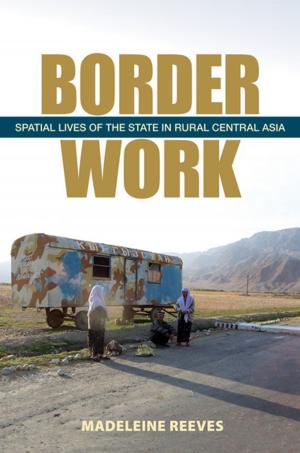Dying to Work
Death and Injury in the American Workplace
Nonfiction, Reference & Language, Law, Labour & Employment, Social & Cultural Studies, Political Science, Politics, Labour & Industrial Relations| Author: | Jonathan D. Karmel | ISBN: | 9781501714375 |
| Publisher: | Cornell University Press | Publication: | December 15, 2017 |
| Imprint: | ILR Press | Language: | English |
| Author: | Jonathan D. Karmel |
| ISBN: | 9781501714375 |
| Publisher: | Cornell University Press |
| Publication: | December 15, 2017 |
| Imprint: | ILR Press |
| Language: | English |
In Dying to Work, Jonathan Karmel raises our awareness of unsafe working conditions with accounts of workers who were needlessly injured or killed on the job. Based on heart-wrenching interviews Karmel conducted with injured workers and surviving family members across the country, the stories in this book are introduced in a way that helps place them in a historical and political context and represent a wide survey of the American workplace, including, among others, warehouse workers, grocery store clerks, hotel housekeepers, and river dredgers.
Karmel’s examples are portraits of the lives and dreams cut short and reports of the workplace incidents that tragically changed the lives of everyone around them. Dying to Work includes incidents from industries and jobs that we do not commonly associate with injuries and fatalities and highlights the risks faced by workers who are hidden in plain view all around us. While exposing the failure of safety laws that leave millions of workers without compensation and employers without any meaningful incentive to protect their workers, Karmel offers the reader some hope in the form of policy suggestions that may make American workers safer and employers more accountable. This is a book for anyone interested in issues of worker health and safety, and it will also serve as the cornerstone for courses in public policy, community health, labor studies, business ethics, regulation and safety, and occupational and environmental health policy.
In Dying to Work, Jonathan Karmel raises our awareness of unsafe working conditions with accounts of workers who were needlessly injured or killed on the job. Based on heart-wrenching interviews Karmel conducted with injured workers and surviving family members across the country, the stories in this book are introduced in a way that helps place them in a historical and political context and represent a wide survey of the American workplace, including, among others, warehouse workers, grocery store clerks, hotel housekeepers, and river dredgers.
Karmel’s examples are portraits of the lives and dreams cut short and reports of the workplace incidents that tragically changed the lives of everyone around them. Dying to Work includes incidents from industries and jobs that we do not commonly associate with injuries and fatalities and highlights the risks faced by workers who are hidden in plain view all around us. While exposing the failure of safety laws that leave millions of workers without compensation and employers without any meaningful incentive to protect their workers, Karmel offers the reader some hope in the form of policy suggestions that may make American workers safer and employers more accountable. This is a book for anyone interested in issues of worker health and safety, and it will also serve as the cornerstone for courses in public policy, community health, labor studies, business ethics, regulation and safety, and occupational and environmental health policy.















